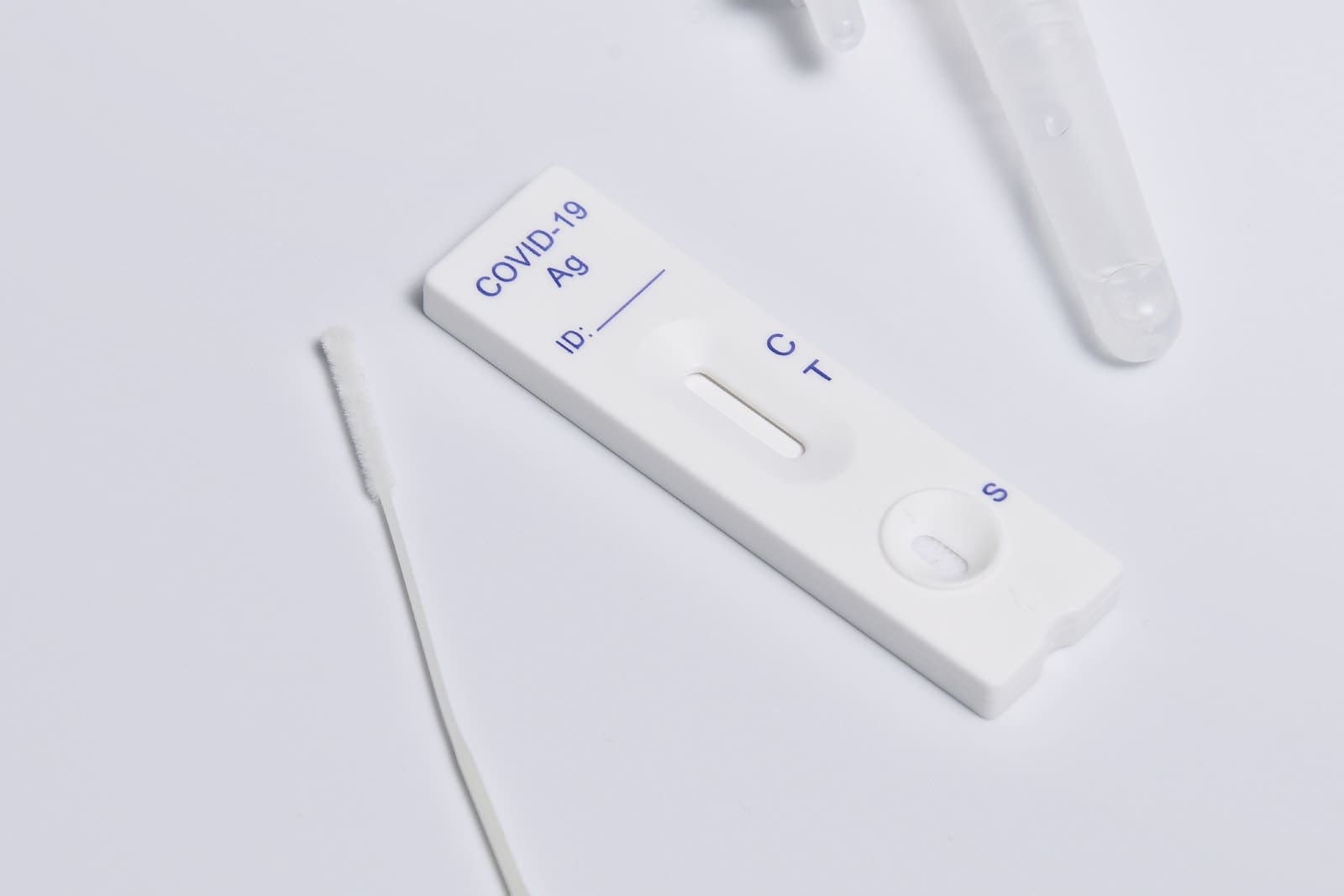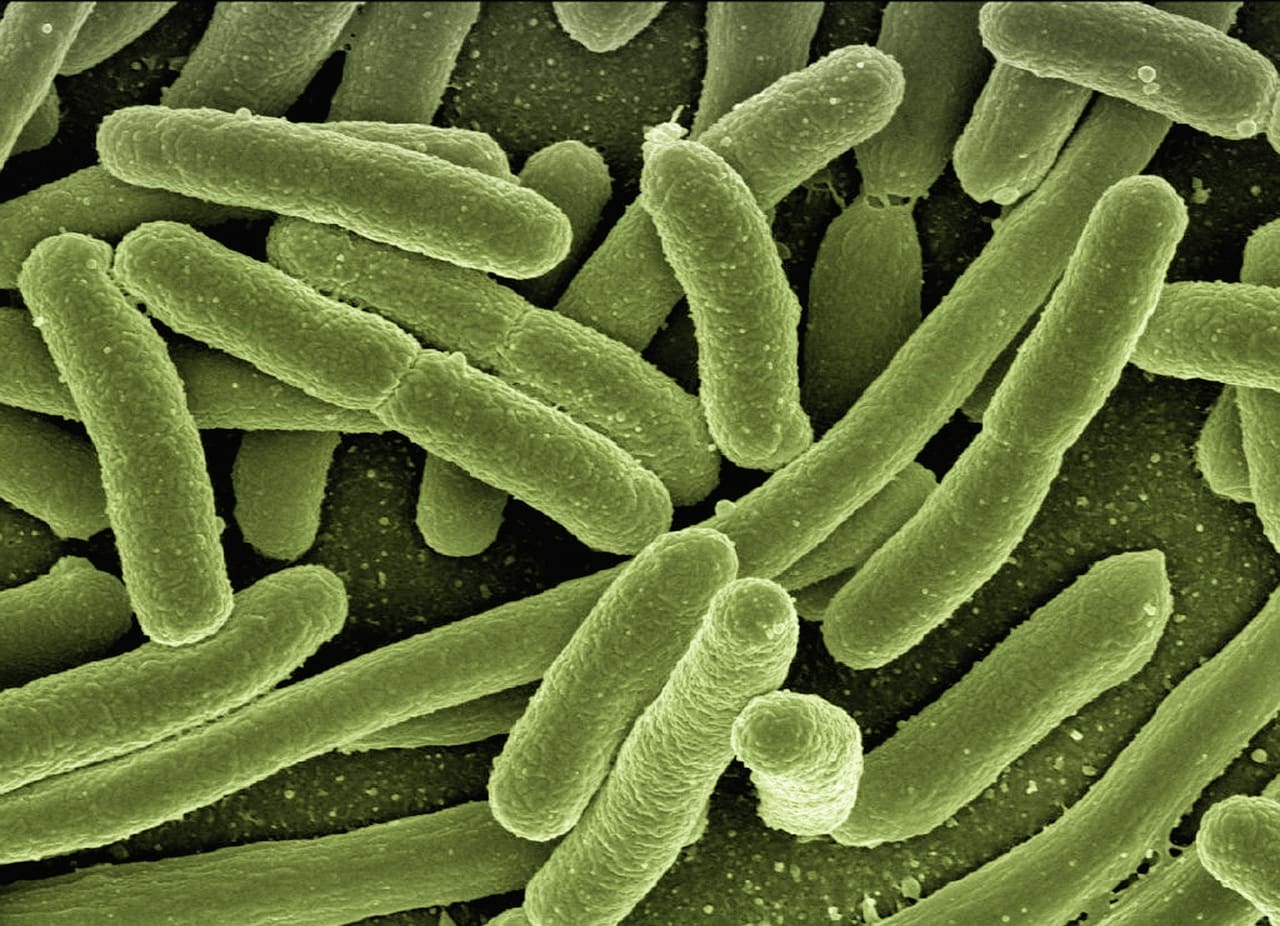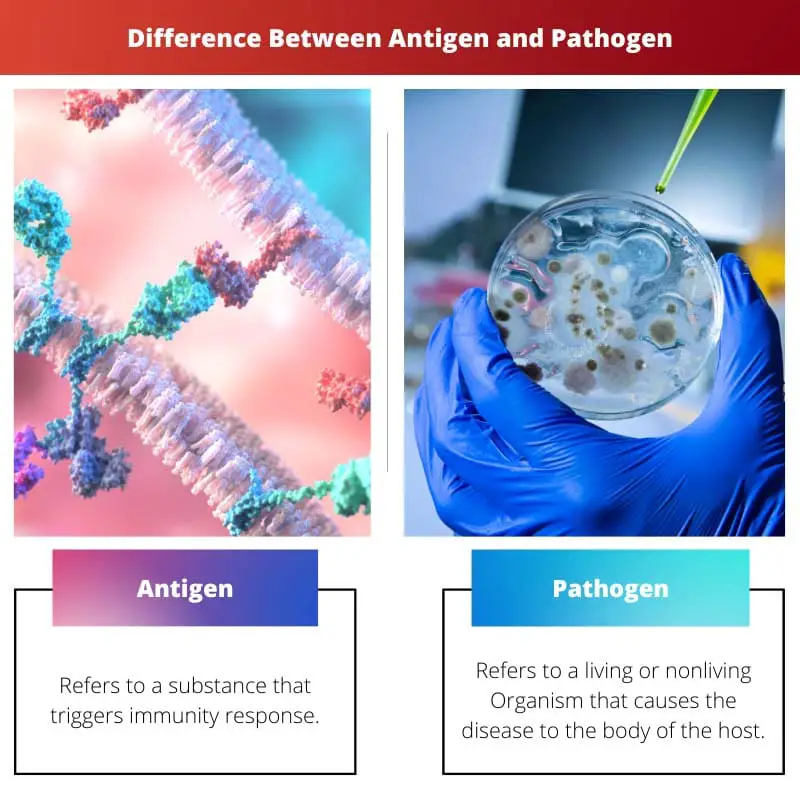The bodies of living organisms are another complete hub of multiple living and nonliving things, and some of them happen to be so crucial for these bodies that it becomes absolutely important to discuss them in detail.
Two of such things are called antigen and pathogen, and due to the minute similarity in these two names, some people tend to use them interchangeably. However, there are a lot of differences that exist between these two terms.
Key Takeaways
- Antigens trigger an immune response, while pathogens are disease-causing microorganisms.
- Pathogens can be bacteria, viruses, fungi, or parasites, whereas antigens are specific molecules found on the surface of these pathogens.
- Vaccines contain antigens to stimulate immunity without causing illness, while antibiotics target specific pathogens to treat infections.
Antigen vs Pathogen
An antigen is a substance that is capable of eliciting an immune response in the body. Antigens are foreign substances that the immune system recognizes as “on-self.A pathogen is any organism that can cause disease in a host. Pathogens can include bacteria, viruses, fungi, parasites, and prions.

Whenever the term antigen is referred, it is implied that a particular substance that is found above the layer of the pathogen is being talked about.
The major reason by which this particular substance is recognized is that it triggers the immune system of the host of the pathogen and makes the body react in order to protect itself.
But on the other hand, the term pathogen has a completely different meaning as compared to the previous term as it denotes a completely different and unique identity in itself.
The pathogen is a term that refers to any of the molecules or substances that spread diseases in the structure of its host. It is considered extremely dangerous and harmful to the body of the host.
Comparison Table
| Parameters of Comparison | Antigen | Pathogen |
|---|---|---|
| Meaning | Refers to a substance that triggers immunity response. | Refers to a living or nonliving Organism that causes the disease to the body of the host. |
| Presence | It is found above the surface of the pathogen. | It is found in the body of the host. |
| Organization level | This can be an acid, lipid, or any such substance. | These are basically living or nonliving organisms. |
| Types | It has many types such as the endogenous and exogenous antigens. | Bacteria fungi and viruses are considered to be its various types. |
| Function | It triggers the response of the immune system of the host upon which the pathogen attacks. | It causes diseases and multiple issues in the body of the affected host. |
What is Antigen?
Whenever the body of a host is affected by any kind of pathogen, a particularly certain substance that is found above the layer of the pathogen enters the body of the host.
This very substance that is present over the body of the pathogen is known as an antigen, and it has a specific capability that somehow results in the benefit of the host.
An antigen, after coming into contact with a host body, makes the body react in a certain manner and makes the immune system of the body function in order to save itself from the harmful impacts of the pathogen.
Most particularly, T cells are activated due to antigen, but in certain cases, lymphocytes may also be activated in the process, and this, in response, helps the host to save his body from the pathogen.
There are multiple types of antigen, but the most crucial out of them happen to be the endogenous and exogenous antigens.
Another very crucial thing to be noted about antigens is that they can be proteins, lipids, or acids and can be found near the structure of a pathogen.

What is Pathogen?
Whenever any living or nonliving Organism penetrates a particular portion of the body of a host and causes certain harmful disruptions, it is known as a pathogen.
In terms of science, there may be various types of pathogens, but only some of them happen to be really dangerous to the body of the host.
Whenever any pathogen manages to penetrate the body of the host, it somehow uses the immune response of the host to flourish, and once it achieves a certain extent, it manages to live there without any problem.
Viruses’, bacteria and fungi are certain big examples of a pathogen, and many major diseases are caused due to the mere presence of these pathogens.
However, the very structure of a pathogen helps the host to destroy its presence.
A pathogen is found carrying a layer of antigen above its structure, and this very layer is recognized by the immune system of the host it is trying to affect, and once that antigen is recognized, the immune system responds in a certain manner and affects the pathogen negatively through many cells and hormones.

Main Differences Between Antigen and Pathogen
- The antigen is known as a substance present on the pathogen, while on the other hand, Pathogen is an agent in itself.
- Antigen triggers the immune response in the host’s body, while on the other hand, pathogen spreads diseases in the host’s body.
- Antigen has multiple types, such as endogenous and exogenous antigens, while on the other hand, pathogens can be bacteria, fungi, or viruses.
- The antigen can be a protein or a lipid, while on the other hand, the pathogen happens to be any kind of organism.
- The antigen is a part present on the pathogen, while a pathogen in itself is a different identity.

References
- https://books.google.com/books?hl=en&lr=&id=mTbJGx7pTe4C&oi=fnd&pg=PP2&dq=antigen&ots=CaQmNYJi4h&sig=Pp2fjntQZMbp2c473pnyChvV56k
- https://www.sciencedirect.com/science/article/pii/S0092867406001905
